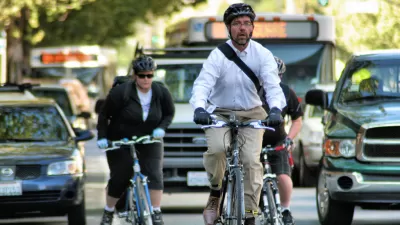According to Jim Titus, two federal government agencies will withdraw their claims that bike helmets are "85% effective".

Titus writes that "(t)he decision comes in response to a petition the Washington Area Bicyclists Association (WABA) filed under the federal Data Quality Act". The group is not anti-bike helmet, having "started the Bicycle Helmet Safety Institute, an independently-funded organization that reviews bicycle helmets and encourages improvements in their design." However, they do not support mandatory helmet laws for adults.
Titus points to a "1989 study in Seattle estimated that helmets prevent 85% of head injuries. Later efforts to replicate those results found a weaker connection between helmets and head injuries, but public health advocates, government web sites, and the news media often present it as fact."
From: "A case-control study of the effectiveness of bicycle safety helmets"; Thompson, Rivara & Thompson, New England Journal of Medicine, 1989:
Safety helmets are widely recommended for cyclists, but convincing evidence of their effectiveness is lacking. Over one year we conducted a case-control study.....We conclude that bicycle safety helmets are highly effective in preventing head injury. Helmets are particularly important for children, since they suffer the majority of serious head injuries from bicycling accidents.
While the degree of safety offered by bike helmets may be up for debate, what isn't is the prevalence of head injuries caused by cycling, writes Anahad O'Connor in a June 3, New York Times article, "Really? Cycling Is the Top Sport for Head Injuries".
Titus writes that since 1989, additional studies "found that helmets reduce the risk of head injuries, but less frequently than Thompson's team found. Some studies even found that helmets increase the risk of neck injuries."
WABA "requires helmets on all rides that it organizes." However, they "draw the line at laws requiring adults to wear helmets. Such laws do little to promote safety, but they discourage bike sharing and other uses of bicycles for short trips", according to Titus.
In WASHCYCLE, Titus identifies one of the federal agencies: the National Highway Traffic Safety Administration (NHTSA) that "is withdrawing its long-standing claim that bicycle helmets prevent 85% of head injuries".
From NHTSA's Bicycle Riding Goal #3: Bicyclist Shall Wear Helmets: "Bicycle helmets are 88% effective in preventing serious brain injury."
FULL STORY: Feds will stop hyping effectiveness of bike helmets

Alabama: Trump Terminates Settlements for Black Communities Harmed By Raw Sewage
Trump deemed the landmark civil rights agreement “illegal DEI and environmental justice policy.”

Study: Maui’s Plan to Convert Vacation Rentals to Long-Term Housing Could Cause Nearly $1 Billion Economic Loss
The plan would reduce visitor accommodation by 25% resulting in 1,900 jobs lost.

Planetizen Federal Action Tracker
A weekly monitor of how Trump’s orders and actions are impacting planners and planning in America.

Wind Energy on the Rise Despite Federal Policy Reversal
The Trump administration is revoking federal support for renewable energy, but demand for new projects continues unabated.

Passengers Flock to Caltrain After Electrification
The new electric trains are running faster and more reliably, leading to strong ridership growth on the Bay Area rail system.

Texas Churches Rally Behind ‘Yes in God’s Back Yard’ Legislation
Religious leaders want the state to reduce zoning regulations to streamline leasing church-owned land to housing developers.
Urban Design for Planners 1: Software Tools
This six-course series explores essential urban design concepts using open source software and equips planners with the tools they need to participate fully in the urban design process.
Planning for Universal Design
Learn the tools for implementing Universal Design in planning regulations.
Caltrans
Smith Gee Studio
Institute for Housing and Urban Development Studies (IHS)
City of Grandview
Harvard GSD Executive Education
Toledo-Lucas County Plan Commissions
Salt Lake City
NYU Wagner Graduate School of Public Service





























